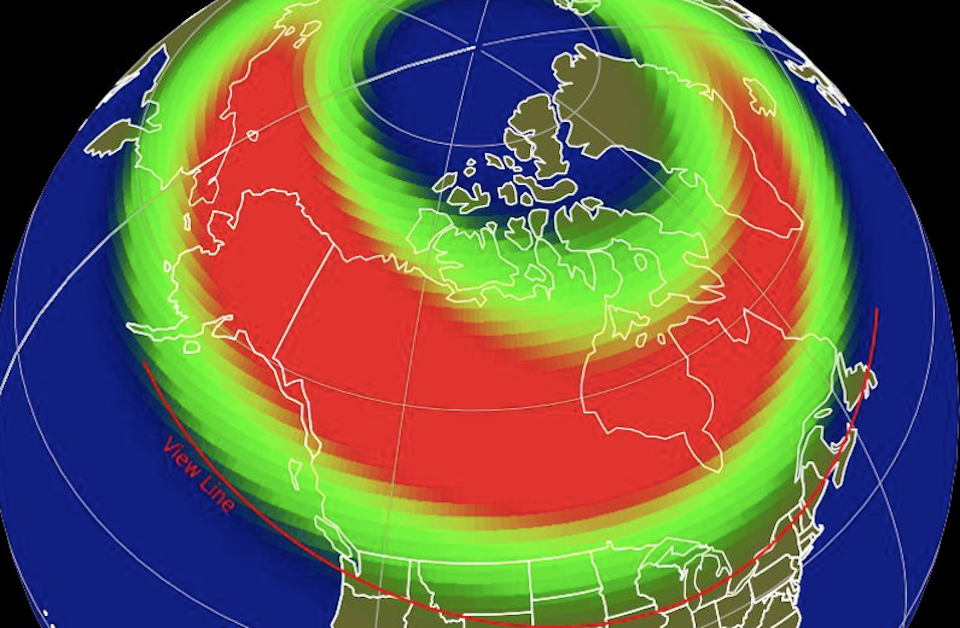A potent geomagnetic storm might create a vibrant display of the northern lights in Metro Vancouver.
The National Oceanic and Atmospheric Administration (NOAA)'s Space Weather Prediction Center expects periods of G3 (Strong) geomagnetic storms throughout Monday, Sept. 16 due to "coronal hole influences and the anticipated arrival of a [coronal mass ejection] from the sun."
The University of Alaska Fairbanks (UAF) calls for high auroral activity on Monday, with possible displays visible "overhead from Inuvik, Yellowknife, Rankin, and Iqaluit, to Portland (Oregon), Cheyenne, Lincoln, Springfield, and New York City, and visible low on the horizon as far south as Carson City, Oklahoma City, and Raleigh," (see slide two).
Weather dependent, residents of the Lower Mainland may observe the dancing lights overhead rather than only low on the horizon during the event.
The university's online aurora monitor map shows what regions the aurora's green glow will likely reach and other areas where it is less likely. Additionally, there is a brief description below the map of the aurora activity on that particular day. You can switch to other days to see the forecast, too.
The Metro Vancouver weather forecast includes the possibility of a few clouds on Monday but no rain or heavy cloud coverage is expected.
V.I.A.'s Trout Lake Weatherhood station in Vancouver shows a high of 21 C and a low of 10 C with a few clouds throughout the day.
Second opportunity to view the northern lights in Metro Vancouver
The UAF expects "high" auroral activity again on Tuesday, providing another opportunity to view the lights of the north overhead in Metro Vancouver.
Highly active auroral displays may be visible overhead from "Inuvik, Yellowknife, Rankin and Iqaluit, to Vancouver, Helena, Minneapolis, Milwaukee, Bay City, Toronto, Montpelier, and Charlottetown, and visible low on the horizon from Salem, Boise, Cheyenne, Lincoln, Indianapolis, and Annapolis," according to the university's forecast (see slide three).
Unfortunately, aurora viewing conditions may not be as favourable on Tuesday night. The forecast for the Trout Lake area shows increasing cloudiness through the day and a 30 per cent chance of showers in the evening.
Environment Canada's online cloud prediction tool for astronomical purposes shows when the sky may clear to determine the ideal aurora-viewing conditions.
Skywatchers can stay up-to-date with hyperlocal forecasts across 50 neighbourhoods in the Lower Mainland with V.I.A.'s Weatherhood.



